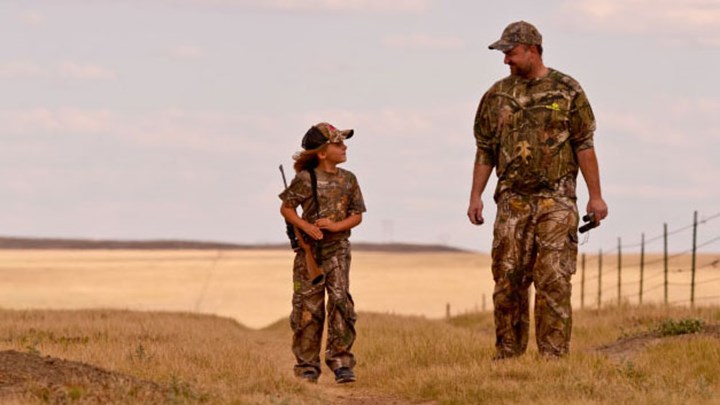
by Phil Phillips - Monday, November 27, 2017

When I was 6 years old, I would sit out in my aunt’s hay barn with my Daisy BB gun, wearing my cowboy hat and waiting for as long as it took for a mouse to come out and eat the grain that had spilled on the floor. Unfortunately, my state’s hunting laws didn’t allow me to get my hunting license until I was 12. By then, I’d spent so much time outdoors and had shot so much with my BB gun, and then my .22, that when I finally turned 12 and got my first deer license, I’d been ready for a long time. When I got my first opportunity at a buck, I was able to make a one-shot kill with my Marlin.30-30. I was mature and responsible and wish my home state of Colorado could have had a governor in those days like Wisconsin’s Governor Scott Walker. If you are wondering why, it’s because on Nov. 17, Walker signed Assembly Bill 455 permitting residents of all ages to participate in the state’s mentored hunting program. Prior to this point, the minimum age requirement to hunt with a mentor was age 10.
As noted by the NRA Institute for Legislative Action (NRA-ILA), “Hunting is a time-honored tradition for many Wisconsin families. With passage of this bill, that tradition will continue to flourish and grow,” said Amy Hunter, NRA-ILA spokesperson in Wisconsin. “Now, families can decide for themselves when to begin teaching the joys and responsibilities of hunting to the next generation.”
I believe it is important for kids to begin hunting when their parents believe they are ready—not when the state says they are ready. As the NRA has always said, when it comes to introducing a child to firearms, and in this case our all-American hunting traditions, the age for beginning the process should be a parental decision based on the child’s maturity and capabilities. Worth noting, when I took my friend’s 7-year-old grandson hunting in Mississippi a few years ago for his first whitetail deer, he shot more accurately during target practice and stayed more composed during the hunt than some adults I know.
My two nephews are also good examples of proficient young people who were introduced to firearms, archery and hunting at an early age as their dad and grandfather were both raised as outdoorsmen and hunters. Not only are the boys turning out to be responsible sportsmen, but they are being taught the importance of hunters and hunting in sustaining America’s wildlife populations. My wife and I were fortunate to offer them a hunting opportunity where the youngest took his first buck through Virginia’s apprentice hunter program at age 8 with a crossbow while sitting in a ground blind with his dad. He is hooked on hunting and now, at age 11, already understands how and why organizations like the NRA work to make sure the future of hunting and conservation remains intact.
For an example from my home state, my cousin’s daughter, who just turned 12, has been grounded in firearm safety and marksmanship for years. She is eager to start hunting with her dad and has a cow elk tag for Colorado’s December rifle season. I’m loaning her my Montana Rifle chambered in 6.5-284 Norma because its muzzle break compensates for felt recoil, making it more akin to shooting a .243.
So when it comes to AB 455, I was happy to learn it was passed by both the state Senate and Assembly with bi-partisan support. Of course, it still requires apprentice hunters to accompany an adult while hunting. Because it allows both the mentor and his or her apprentice to carry a firearm or bow on the hunt, new hunters receive the full hunting experience. And as NRA-ILA’s Amy Hunter also noted, “This bill is a wonderful step in preserving and advancing America’s hunting heritage.”
I hope more states follow Wisconsin’s lead. As the number of licensed American hunters drops and the average age of hunters rises, it is more important than ever to get young people involved and excited about hunting and our all-American way of life.
E-mail your comments/questions about this site to:
[email protected]
Proudly supported by The NRA Foundation and Friends of NRA fundraising.
